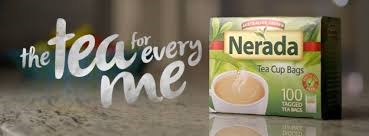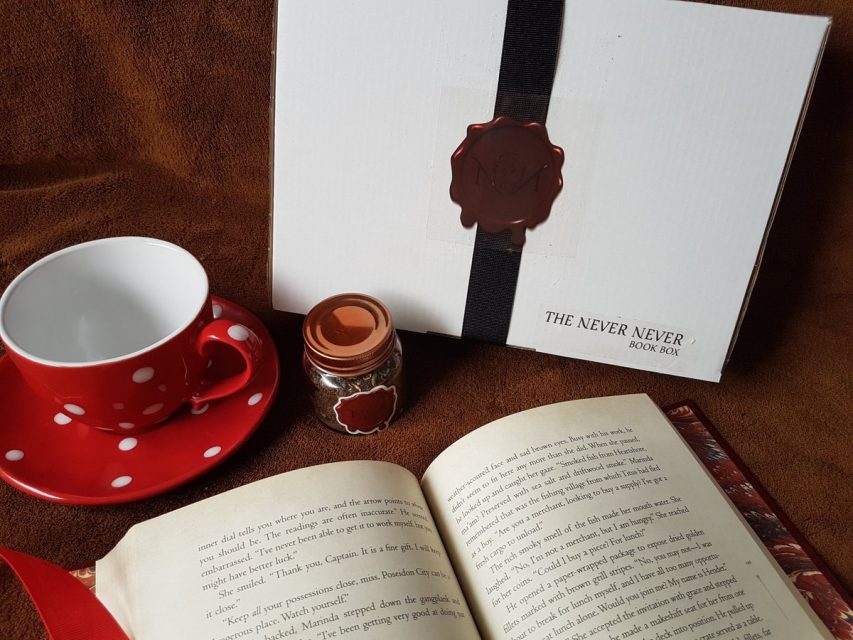
Despite rumours to the contrary, I am not a tea snob. While I drink plenty of loose-leaf tea, I also drink a ton of tea bags. So, I was delighted when Lyss took time out from the Never Never Book Box launch to pitch this to me.
Everyone loves a cup of tea! But more and more people are coming to care about where their tea comes from. Ethically sourced tea is a massively growing industry, with many ethical brands now being available at the local supermarket in Australia.
But are they any good?
This is the real question for tea connoisseurs. Is there any quality difference between the ethical brands and our old favourites? And just which ethical ratings can you trust?
Well don’t panic, we here at NeverNever HQ are going to figure all this out for you!
So what counts as ethical?
Ethically sourced tea is about how the tea is grown, the conditions workers face, and environmental impact. Brands that pay their farmers fairly, keep the conditions of all their workers to a high standard, and practice sustainable farming are classified as ethical. One might also consider the parent company of many tea brands, and their ethical standards outside of the tea industry.
If one doesn’t feel like googling every tea brand on your Woollies shelf, there are a few certification projects that can be trusted. Fair Trade Certificates and Rainforest Alliance Certification are some of the most well-known ethical projects, and they are still considered to be highly effective. The Ethical Tea Partnership is currently undergoing an investigation into its program after it was discovered that many brands failed to meet even the basic standards for worker rights and workplace safety. For this reason, we will be excluding products that only use this certification.
Teas that we’re not including:
Lipton: Whilst being Rainforest Alliance Certified, Lipton is owned by Unilever, which has an ethical rating of C on Shop Ethical!, with reports of worker exploitation, animal testing, and price fixing. Lipton themselves have breached advertising codes in Australia and were recently fined for a massive soda ash leak in 2016.
Tetley: As a member of ETP and is a Rainforest Alliance honouree, Tetley is still owned by Tata Global Beverages. Tata has been reported for workers’ rights violations in India and has ties to human trafficking.
Twinnings: Twinnings & Co is a GE-Free brand and has won the KEEP award in 2009; their parent company Associated British Foods has failed investigations into workers’ rights and animal welfare, and continued tax avoidance and use of tax havens in Zambia and Southern Africa.
Now that that’s out of the way.
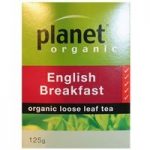 Planet Organic
Planet Organic
Using exclusively organic and non-GMO products, they are certified as Fair Trade. Using organic, sustainable farming techniques, this Australian-owned and -operated company prepares all their products on the Sunshine Coast, minimising the carbon footprint generated by distribution. Their teabags are made from Manilla Hemp fibre, so it’s compostable and biodegradeable.
Method: Steeped for 3min in 65 ˚C water
Flavour: Smooth flavour, strong tannin aftertaste, bitter
Strength: 3/5
Worth the Price: $7.50 for 125g, not really worth it
Rating: 6/10
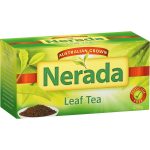 Nerada
Nerada
Nerada offers both standard and organic tea varieties, and grows all their tea right here in Australia, in Northern Queensland. Certified Fair Trade, they also support the WWF’s reforestation initiative and have signed the Australian Packaging Covenant, a voluntary program that promotes waste minimisation.
Method: Steeped for 2 min in 65˚C water
Flavour: mild flavour, mild tannin flavour, nutty
Strength: 2.5/5
Worth the Price: $3.00 for 250g, very cost effective
Rating: 8/10
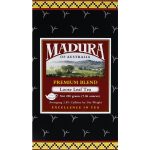 Madura
Madura
Madura is an award-winning tea brand that operates with high standards of sustainable farming and is a signatory of the Australian Packaging Covenant. They have positive workers’ rights reports from overseas and reportedly maintains a safe and healthy work environment–but this cannot be confirmed by a documented outside source.
Method: Steeped for 2 min in 75˚C water
Flavour: Strong bitter flavour, mildly caffeinated, low tannin
Strength: 4/5
Worth the Price: $5.30 for 200g
Rating: 6.5/10
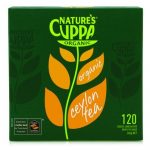 Nature’s Cuppa
Nature’s Cuppa
Owned by EatRite Australasia, their tea is sourced from Certified organic products from Sri Lankan estates. Their claims of environmentally friendly farming are verified by the National Association of Sustainable Agriculture Australia and are completely carbon neutral.
Method: Steeped for 3min in 65 ˚C water
Flavour: Strong, smooth flavour, low tannin aftertaste, cozy
Strength: 3.5/5
Worth the Price: $14.30 for 120 teabags, expensive
Rating: 7.5/10
These are all my opinions on the flavour as I followed the steeping instructions provided. All of these teas were tasted black with no sugar, so this will of course change what suits best for you if you use milk and sugar. Personally, I loved the flavour of Nature’s Cuppa best. However, taking price into consideration, my choice would be Nerada.
All in all, I declare Nerada my favourite ethical tea available at the grocery store.
For now, the socially conscious can rest easy that there are many delicious options to sate their tea cravings. Guilt free indulgence is accessible for all.
 Lyss Wickramasinghe, reporting from the bottom of a teapot at Never Never HQ. She had to battle off a few hundred pirates and a couple of pesky Lost Boys, but can now enjoy her cuppa in peace.
Lyss Wickramasinghe, reporting from the bottom of a teapot at Never Never HQ. She had to battle off a few hundred pirates and a couple of pesky Lost Boys, but can now enjoy her cuppa in peace.
To share her love for ethical and delicious tea, The Never Never Book Box has included a specially blended organic tea in their Upcoming Questing box.
Sign up to their mailing list for a chance to WIN a Free Box at http://the-never-never-book-box.launchrock.com/

